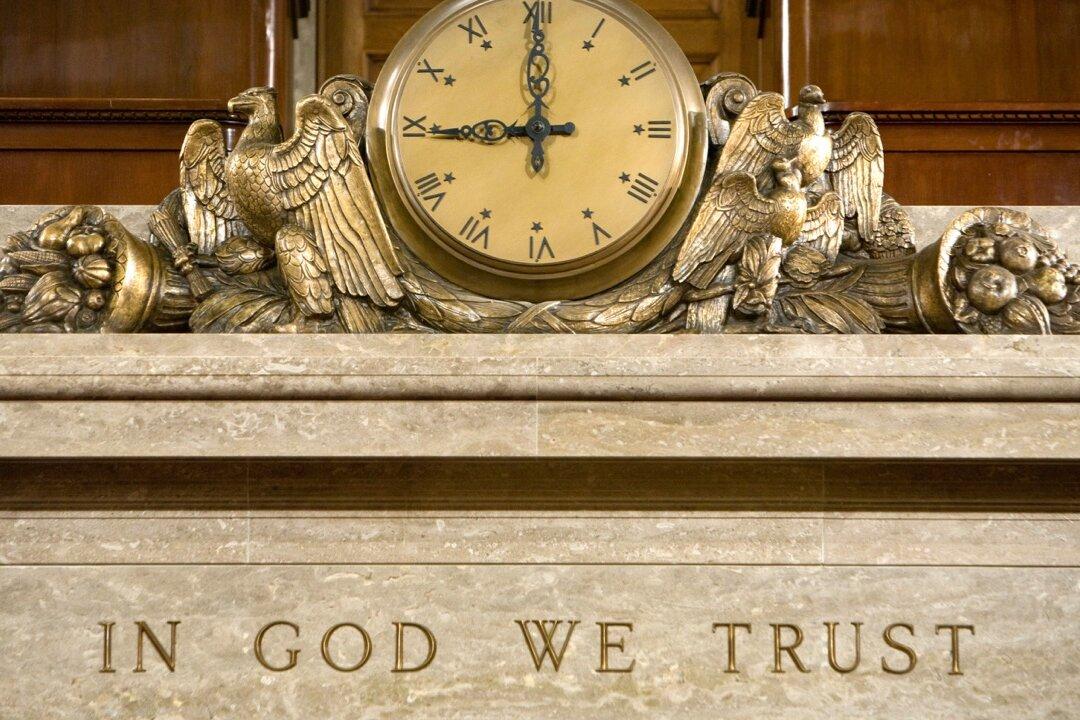“In God We Trust” signs are increasingly being placed in public schools and other public venues across America as more and more states pass laws allowing or mandating references to the divine.
These laws have emerged as their proponents seek to expand references to God or the Bible in the public arena, motivated by reasons ranging from honoring tradition to providing direction and hope.





